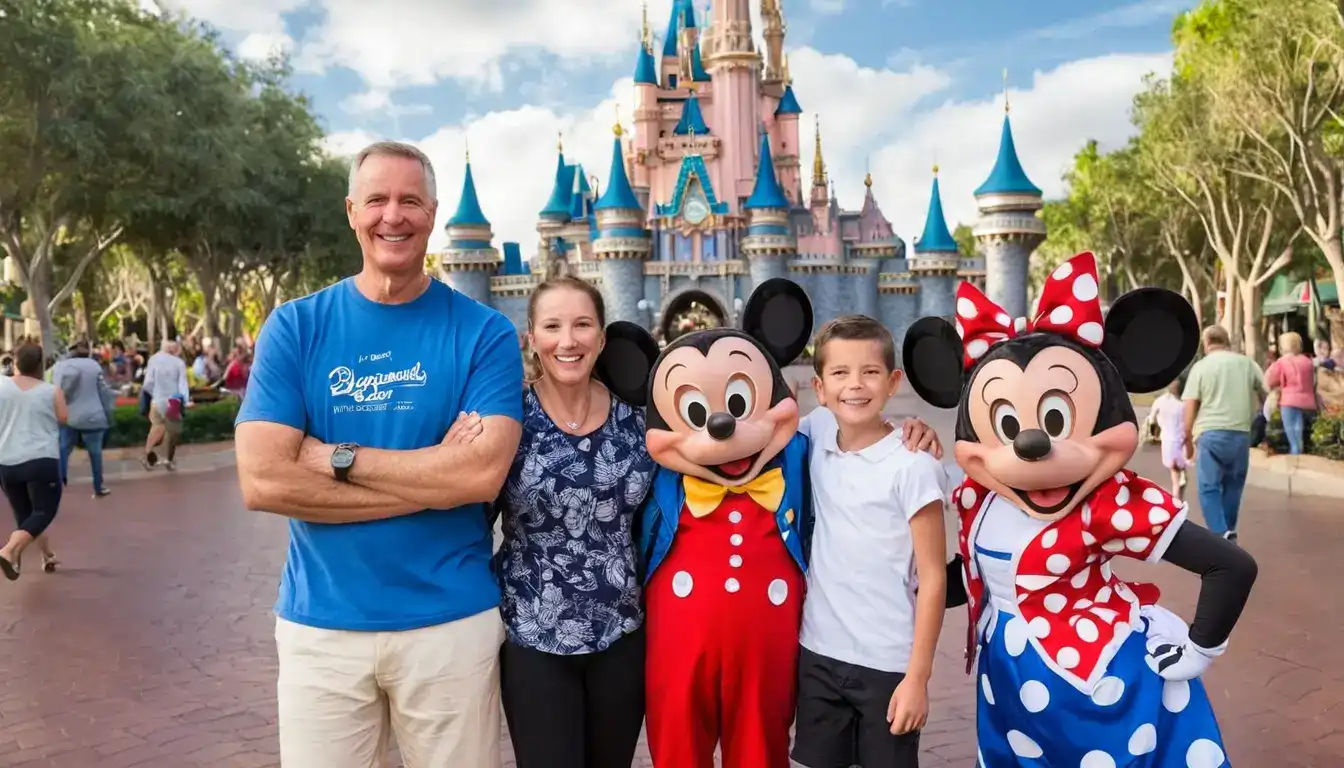PR Coordinator Entry Level Entertainment
Emily Willis

Photo: PR Coordinator Entry Level Entertainment
Lights, Camera, Action: Your Guide to Becoming an Entry-Level PR Coordinator in Entertainment
The entertainment industry – from dazzling red carpets to chart-topping music releases and blockbuster film premieres – thrives on public perception. Behind every successful celebrity, hit show, or major studio lies a dedicated team of public relations professionals, meticulously crafting narratives and managing reputations. If you've ever dreamt of being at the heart of this dynamic world, a career as an entry-level PR Coordinator in entertainment might be your perfect script.
This comprehensive guide will walk you through what it truly means to be a PR Coordinator in this exciting field, the essential skills you'll need, and a practical roadmap to help you land your first role. Get ready to discover how you can turn your passion for entertainment into a thriving career in public relations.
What Exactly Does an Entry-Level PR Coordinator Do in Entertainment?
A PR Coordinator in entertainment is an essential part of the public relations team, working to manage the image and reputation of individuals, projects, or organizations within the entertainment sphere. This can include actors, musicians, film studios, television networks, gaming companies, and more. It's a fast-paced, demanding, yet incredibly rewarding role that serves as a crucial stepping stone into the broader field of public relations.
At its core, public relations in entertainment is about storytelling, relationship building, and reputation management. PR Coordinators assist in promoting positive coverage and publicity, helping clients connect with audiences, build loyal fan bases, and ultimately boost their career success.
Core Responsibilities: Beyond the Glamour
While the idea of working with celebrities and attending glamorous events is certainly part of the appeal, the day-to-day life of an entry-level PR Coordinator involves a significant amount of foundational work. You'll be the backbone of the PR team, handling vital administrative and support tasks that keep campaigns running smoothly.
Typical responsibilities often include:
- Drafting Press Materials: This is a cornerstone of the role. You'll assist in writing and distributing press releases, media pitches, media alerts, and other written materials to effectively convey messages to the media.
- Media Relations Support: Building and maintaining relationships with journalists, bloggers, and social media influencers is crucial. You'll help compile and update media lists, track media coverage (press clippings), respond to media inquiries, and coordinate interviews or appearances for clients.
- Event Coordination: Supporting events, from press conferences and product launches to red carpet events and film shoots, is a key part of the job. This can involve logistical support, preparing press kits, and assisting with talent itineraries.
- Social Media Management: In today's digital age, monitoring social media activity and assisting with social media campaigns is increasingly important. This can include drafting social content, managing social media channels, and monitoring online sentiment.
- Administrative Duties: Expect to handle a variety of organizational tasks such as maintaining databases, tracking work, preparing reports on PR activities and metrics, and assisting with internal communications.
The environment is consistently fast-paced, with priorities often shifting quickly based on breaking news or client developments. This role demands multitasking and proactive communication to ensure positive media coverage and protect client reputations.
Essential Skills for Aspiring Entertainment PR Coordinators
To thrive as an entry-level PR Coordinator in entertainment, you'll need a blend of "hard" (technical) and "soft" (interpersonal) skills. While many of these can be honed on the job, having a strong foundation will set you apart.
Foundational Skills: The Non-Negotiables
- Exceptional Communication Skills (Written & Verbal): This is paramount. You'll be drafting press releases, pitching stories to media, and communicating with clients and colleagues daily. Clarity, conciseness, and persuasion are key.
- Organizational Skills and Attention to Detail: The role involves juggling multiple tasks, managing deadlines, and maintaining accurate records. Being meticulous ensures nothing falls through the cracks, especially under pressure.
- Adaptability and Problem-Solving: The entertainment industry is dynamic and unpredictable. You'll need to think quickly, be resourceful, and pivot strategies when unexpected challenges arise, such as a crisis or a sudden client development.
- Tech-Savviness: Proficiency with standard office software (like Microsoft Office and Google Drive) is expected. Familiarity with PR tools such as Cision or Muck Rack for media monitoring and database management, as well as social media management platforms, is highly beneficial. Basic graphic design skills (e.g., Photoshop) can also be a plus.
- Passion for Entertainment: While not a skill in the traditional sense, a genuine interest and understanding of the entertainment landscape – including film, music, television, gaming, and celebrity culture – will fuel your drive and help you anticipate industry trends.
Soft Skills for Success: Building Relationships
- Interpersonal Skills: Building strong relationships with media contacts, clients, and industry professionals is crucial. This involves active listening, empathy, and the ability to network effectively.
- Creativity: In a competitive industry, fresh ideas and innovative approaches to storytelling and campaigns are highly valued.
- Professionalism and Accountability: Representing clients means maintaining a high level of professionalism at all times. Being accountable for your tasks and commitments builds trust within your team and with clients.
Educational Background and Training: Your Launchpad
While direct experience is highly valued, a solid educational foundation can significantly boost your prospects for an entry-level PR Coordinator role.
Relevant Degrees
Most employers prefer candidates with a bachelor's degree in a related field. Common majors include:
- Public Relations
- Communications
- Journalism
- Marketing
- English or Writing
These programs provide essential knowledge in communication strategy, media relations, content creation, and industry ethics.
The Power of Internships: Gaining Practical Experience
Internships are arguably the most critical stepping stone into an entry-level PR Coordinator position in entertainment. They offer invaluable hands-on experience and networking opportunities that are difficult to replicate in a classroom setting. Many internships in the entertainment PR sector, especially at the entry-level, may be unpaid, but some paid opportunities do exist.
During an internship, you'll gain practical experience in:
- Assisting with daily press clippings and media monitoring.
- Coordinating press interviews and set visits.
- Drafting press releases and media pitches.
- Supporting events and marketing brainstorming sessions.
- Building media contact lists.
Securing multiple internships, even if unpaid, can provide a significant advantage, demonstrating your dedication and building a portfolio of real-world experience.
Breaking In: Your Roadmap to an Entry-Level PR Role
The entertainment industry is competitive, but with a strategic approach, you can successfully navigate the job market for an entry-level PR Coordinator role.
Networking Strategies: It's About Who You Know (and Who Knows You)
Networking is paramount in the entertainment industry.
- Industry Events: Attend conferences, workshops, and online webinars related to public relations and entertainment. These are prime opportunities to meet professionals and learn about current trends.
- LinkedIn: Leverage LinkedIn to connect with PR professionals, follow entertainment companies, and explore job listings. Informational interviews can provide valuable insights and connections.
- Leverage Your School's Career Center: Universities often have strong connections to industry professionals and can assist with internships and job placements.
Crafting a Compelling Resume and Cover Letter
Your resume and cover letter are your first impression.
- Highlight Relevant Skills: Emphasize your communication, organizational, media relations, and social media skills, even if gained through academic projects or volunteer work.
- Showcase Entertainment Passion: Tailor your resume and cover letter to each application, demonstrating your specific interest in the entertainment sector. Mention relevant coursework, personal projects, or internships that align with the industry.
- Quantify Achievements: Whenever possible, use numbers to show impact (e.g., "Increased social media following by 18%," "Assisted with X successful media placements").
Building a Strong Portfolio (Even Without Paid Experience)
Even as an entry-level PR Coordinator, a portfolio can be a game-changer.
- Academic Projects: Include strong writing samples from coursework, such as mock press releases, media kits, or campaign plans.
- Volunteer Work: Offer your PR skills to local arts organizations, independent film projects, or student groups. This provides real-world experience and tangible results.
- Personal Projects: Start a blog or a social media account dedicated to entertainment news, reviews, or
Latest ✨
View AllNavigate the regulatory maze. This guide helps businesses ensure compliance, manage risks, and achieve sustainable growth by adhering to essential laws.
Emily Willis
Unlock the power of Human Capital! Discover why it's the vital asset for the future of work, driving innovation & competitive advantage. Learn key strategies.
Emily Willis
Saving and investing are essential components of building financial security. Saving helps accumulate money for short-term goals, while investing allows money to grow for long-term aspirations. Understanding financial goals, developing effective savings strategies, and creating a customized investment plan are key steps in achieving financial success.
Emily Willis
Character education is essential for equipping youth with the values and ethical principles needed to navigate a complex world. It promotes qualities such as honesty, respect, responsibility, empathy, perseverance, and citizenship. By instilling these values, character education builds resilience in young people, empowering them to make responsible decisions, form positive relationships, build self-esteem, develop coping mechanisms, and engage in civic activities.
Emily Willis
Business
View All
July 4, 2025
Colorado Business Search GuideEfficiently search Colorado business records. This guide helps you navigate the SOS database for legitimacy, due diligence, and competitive analysis.
Emily Willis

June 9, 2025
Expand Your Business GloballyExpand your business globally with our comprehensive guide! Discover how to tap new markets, boost profits, and achieve international success.
Emily Willis

August 5, 2024
Strategies to Eliminate Distractions and Improve Focusfocus and concentration in today's fast-paced world filled with distractions. It provides practical tips and techniques to improve concentration, overcome distractions, and boost productivity. The guide covers understanding the impact of distractions, identifying triggers, creating a conducive environment, enhancing attention span, managing digital distractions, techniques for improving concentration, mindfulness, effective time management, self-care, and maintaining focus in a team environment.
Emily Willis
Economy
View AllUnlock the power of education economics! Discover how investing in human capital drives economic growth, innovation, and shapes our collective future prosperity...
Read MoreIndustrial policy, once dismissed, is making a powerful comeback. Explore why governments are re-engaging to steer economies and build resilience.
Read MoreDiscover the incredible impact of lean startup through 10 revolutionary examples. Explore how these startups disrupted industries, challenged the status quo, and created unprecedented success, shaping the business landscape as we know it.
Read MoreEntertainment
View All
August 5, 2024
VR and AR Transform EntertainmentVirtual reality (VR) and augmented reality (AR) are transforming the entertainment industry by offering immersive experiences that blur the lines between the real and virtual worlds. VR completely transports users into computer-generated environments, while AR overlays digital elements onto the real world.
Emily Willis

July 4, 2025
Double the FunDiscover how to "Double the Fun" by amplifying everyday joy and maximizing satisfaction from your experiences. Boost happiness & well-being!
Emily Willis

July 4, 2025
EVO Cary ThrillsDiscover EVO Cary: Your ultimate entertainment hub in NC! Enjoy luxury movies, bowling, arcade games & more for unforgettable fun.
Emily Willis
Health
View AllThe healthcare landscape is being transformed by technological advancements, with telehealth and remote care providing convenient access to healthcare services. Artificial intelligence is revolutionizing diagnostics, personalized medicine, and drug discovery. Wearable technology is empowering patients to take control of their health.
Emily Willis
Maintaining good health involves a balanced diet that provides essential nutrients for the body. A balanced diet includes carbohydrates, proteins, fats, vitamins, minerals, fiber, and water. Benefits of a balanced diet include enhanced energy levels, improved mental health, a stronger immune system, better weight management, reduced risk of chronic diseases, and enhanced digestion. Components of a balanced diet include fruits and vegetables, whole grains, protein sources, dairy or dairy alternatives, and healthy fats. Tips for maintaining a balanced diet include planning meals, portion control, staying hydrated, limiting processed foods, eating mindfully, and including physical activity.
Emily Willis
Heart disease is a leading cause of death globally, but early detection and prevention strategies can reduce its impact. This article discusses the importance of early detection, common risk factors, preventive measures, and lifestyle changes for heart health. Understanding heart disease, recognizing symptoms, and undergoing regular screenings are crucial. Common risk factors include high blood pressure, high cholesterol, diabetes, smoking, obesity, physical inactivity, and family history. Symptoms of heart disease include chest pain, shortness of breath, fatigue, irregular heartbeat, and swelling. Diagnostic tests and screenings include blood pressure measurement, cholesterol screening, blood glucose test, ECG, stress test, and imaging tests. Preventive measures include adopting a heart-healthy diet, regular physical activity, quitting smoking, managing stress, maintaining a healthy weight, and limiting alcohol consumption. Medications and treatment options may be necessary for individuals at high risk or diagnosed with heart disease.
Emily Willis
Trending 🔥
View All
1
2
3
4
6
7
8
9
10
Lifestyle


Sports
View AllAugust 5, 2024
Sportsmanship in the Spotlight: Cultivating Respect, Integrity, and Ethical Behavior
Read MoreTechnology
View All
August 5, 2024
How AI is Used to Solve Problems in Various Industries
Artificial Intelligence (AI) is reshaping industries across the globe, from healthcare to finance, by solving complex problems, increasing efficiency, and driving innovation. In healthcare, AI is saving lives through drug discovery, disease diagnosis, personalized medicine, and virtual health assistants.

August 4, 2024
The Role of 5G Technology in Revolutionizing Communication
The introduction of 5G technology is set to revolutionize communication by offering faster speeds, lower latency, and increased capacity for connecting devices. This technology will impact various sectors such as healthcare, transportation, and entertainment. 5G enhances communication through faster speeds, lower latency, and increased capacity, enabling applications like remote surgery, autonomous vehicles, and high-quality streaming.

August 5, 2024
The Most Common Types of Cybersecurity Threats
In today's digital age, cybersecurity threats are increasing in sophistication and frequency. It is important for businesses and individuals to be aware of these threats in order to protect sensitive information and maintain privacy. Understanding common types of cybersecurity threats is the first step in safeguarding against them.

August 5, 2024
The Future of Cloud Computing and Its Impact on the Business World
Cloud computing has revolutionized business operations with benefits such as cost savings, scalability, and flexibility. The future of cloud computing includes trends such as edge computing, hybrid and multi-cloud strategies, AI and ML integration, serverless computing, quantum computing, enhanced security measures, and sustainability initiatives.



















